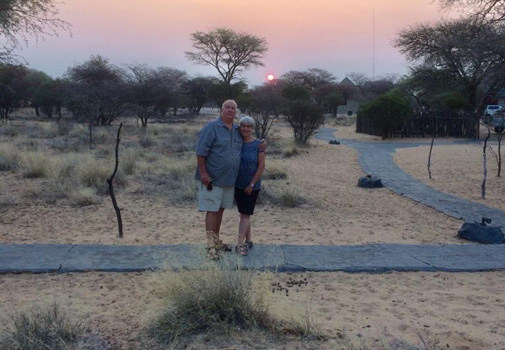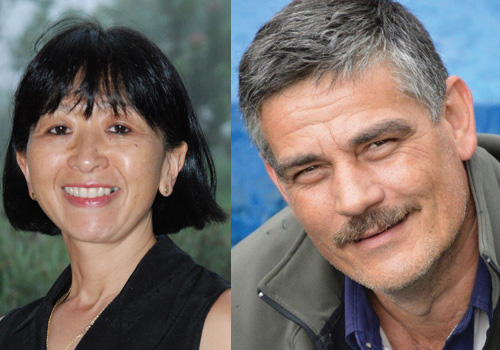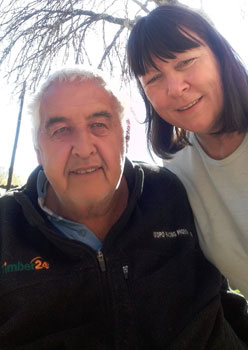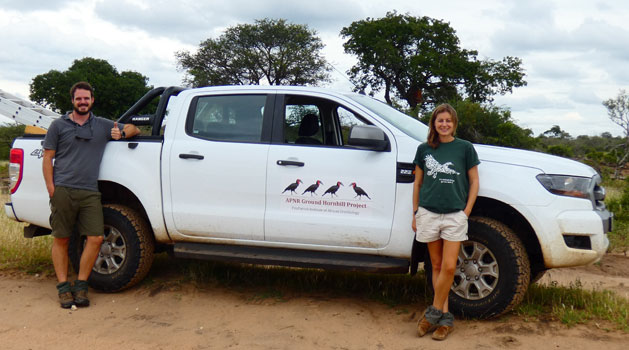Our CHAMPIONS
How to be a Southern Ground-Hornbill CHAMPION: we need your help
Why Do We Need To Monitor The National Population?
One of the primary responsibilities of the Mabula Ground Hornbill Project is to monitor the national population of Southern Ground-Hornbills. Southern Ground-hornbills are incredibly difficult to census, as they naturally occur at low densities, with a single-family group using on average 100km2. However, the Southern Ground-Hornbill Working Group developed and adopted a simple but logical system that works on four-year cycles. This way we will be able to assess if the population is still declining to “Critically Endangered”, if it has stabilised, or if conservation efforts are leading to population recovery. This will guide our conservation focus, allowing us to target areas where the population is most endangered, so that we can target our resources strategically, and thus make the most conservation progress. Most importantly it allows us to monitor areas that may not normally be assessed through other forums such as bird atlassing, park management, or birding trip reports.
How Do We Monitor?
Censusing takes place using a grid system at the scale of pentads (five minutes of latitude by five minutes of longitude – i.e. squares with sides of roughly 9 km, one ninth the size of quarter degree grid cells). The use of monitoring within pentads was adopted by South African Bird Atlas Project (SABAP2) in 2007 and is highly suitable for monitoring Southern Ground-hornbills as these are a proxy for a single Southern Ground-hornbill territory. As ground-hornbills are residents, and maintain these territories for decades, we are capable of more accurately monitoring presence for the species. So, every record is priceless, and ultimately, we need to ensure that every pentad within the range is well represented and reported at least once annually as this will allow us to determine if a territorial group has simply not been sighted for a year, or if the group is no longer around, and if Southern Ground-Hornbill populated areas are declining and how and why are they declining. We collate data from SABAP 2 and BirdLasser and emails or phonecalls that come through but this is not enough. We cannot achieve full coverage without your help.
How To Become A CHAMPION?
The first step is to set up your CHAMPION base, your army of citizen scientists that will be your group of contacts in your area that will inform you of any Southern Ground-hornbill sightings. It is essential that you should know everyone that you add to your group, as information such as the location of a nest, may lead to disturbance, egg theft, or poaching, and so you should feel comfortable with the people you have in your group (for more information see Box 1) .
The best way of managing these contacts and receiving their sightings is through a WhatsApp group.
|
Samsung/Android |
iPhone/Apple |
|
Open WhatsApp and make sure you are in the “Chats” tab. |
|
|
Click on the “three little dots” in the top right-hand corner. |
In the right corner of the screen there is an option to add “New Group” |
|
Select “New Group” |
Select your contacts for the group |
|
Select your contacts for the group |
Create the group’s name |
|
Create the group’s name |
Press “Create” |
|
Press “Create” |
The group is now up and running and you will be able to add new contacts as and when more people become interested in helping you be our Champion |
|
Add the national sightings number “079 754 6234” to the group so that we can access the data |
|
|
You are now actively assisting in the national monitoring of Southern Ground-Hornbills |
|
The most important information needed is the date of the sighting, the GPS coordinates, and the number of birds seen. To provide GPS coordinates a “Location pin” can be dropped where the birds were seen by pressing the “attachment/paper clip” (Android) or “+” (Apple) icon in the group chat. If you are able to take a picture and post it to the WhatsApp group it is a bonus. Any additional information regarding the birds is always welcome, examples would be if the birds are around a nest, what habitat they are in (e.g. sugar cane, timber plantation, grassland etc.) or if any of the birds have rings on their legs or any other identifying features etc.
Box 1: Whatsapp Group Caution
In addition to the sharing of critical information, WhatsApp group admins, members, and their respective organisations become part of the “chain of publication” for whatever is posted on the group. Messages and images that are posted on private groups can result in serious repercussions, including being found guilty of defamation or hate speech on the basis of vicarious liability. At present there is no certainty to the extent and severity of these charges, but several incidences have occurred where content from WhatsApp groups have been utilised in South African Courts of Law.
Until there is certainty on the approach that our courts will take on the liability of WhatsApp admins, members, and organisations, we offer some practical advice suggested by Norton Rose Fulbright Associates; Megan Claassens (SA) and Sinal Govender (SA) that companies and individuals can implement immediately:
- Ask yourself what the consequences of the content shared on your WhatsApp group (be it with family or friends, a home owners association, school committee, or a company) could be if this content was shared publicly. Remember, a claim for defamation only requires publication to one other person (including those in the group).
- Ensure the credibility of the participants of the group. Are all these people personally known to you as the group admin? If a person has subsequently left the organisation or circle to which the group pertains, have you removed them from the group?
- Educate the members of group regularly with regard to what content is permitted to be shared. For example, these Southern Ground-hornbill sightings groups should be used only to share information that pertains to the groups, not cat videos, and certainly not political commentary.
- Object to content that may be regarded as defamatory or offensive. This should also be followed by taking immediate steps to get a promise not to repeat the behaviour and, if not, to remove the content and the person sharing such content from the group. In addition, a message should be shared with the group stating that such behaviour is not condoned, and will not be tolerated from other members.













